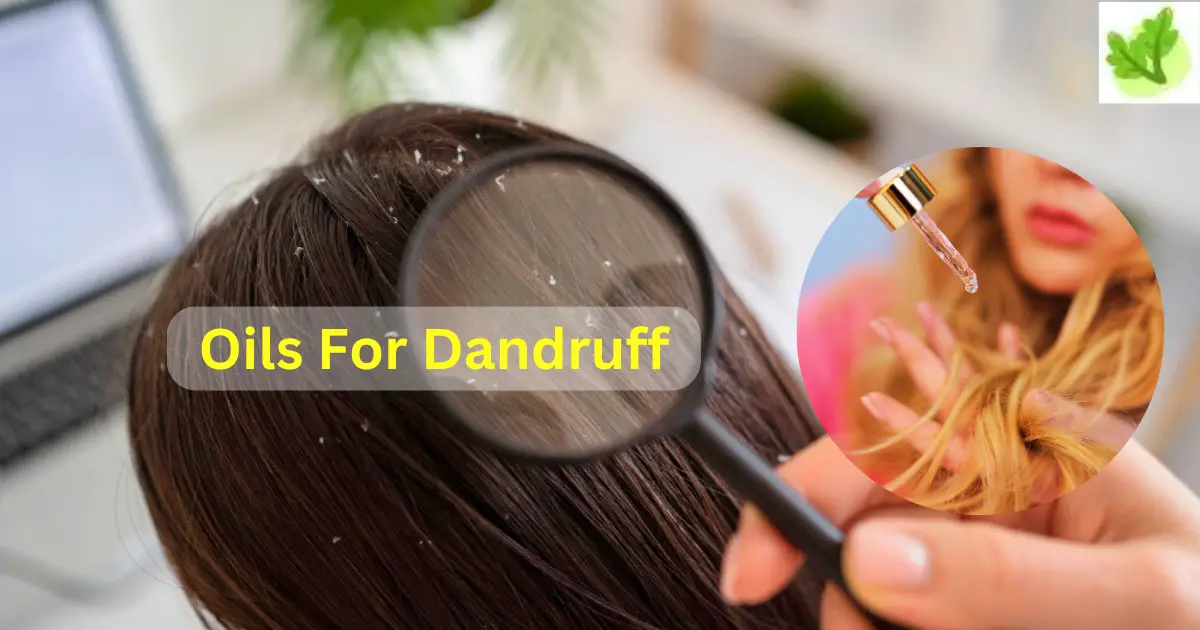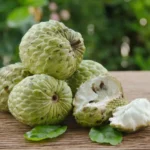We at Health Buzz Pk. understand that dandruff can frustrate many people. It has an impact on the scalp along with the rest of the body, especially confidence. Dry or oily skin, an excess of yeast on the scalp, and many other issues can contribute to dandruff.
However, there are solutions to help manage and even eliminate dandruff, and one of those solutions is using oils. Using oils for dandruff may seem counterintuitive, especially for those with oily scalps. However, the correct type of oil can help balance the scalp and reduce dandruff.
We will be covered this article on different dandruff-treating oils and how to use them in a hair care regimen.
Oils For Dandruff
A common problem that many people experience, dandruff causes an itchy, flaky scalp. Although many medications are available, some people use natural solutions such as oils to treat dandruff.
In this article, some of the best oils and tips for dandruff.
Definition of Dandruff
A typical scalp problem called dandruff makes the scalp develop flaky skin. Dandruff is caused by various factors, including dry skin, sensitivity to hair care products, or a yeast-like fungus called Malassezia.
The Prevalence of Dandruff in the Population
Millions of people worldwide have the problem of dandruff. Dandruff affects more than 50% of people world. It affects men more than women and is more prominent in those with oily skin.
Causes of Dandruff
Before discussing the oils for dandruff, let’s understand what causes this scalp condition. Malassezia, a fungus that resembles yeast, is the most common source of dandruff. Create oleic acid, which may damage your skin and lead to dandruff, and fungal growth feeds on the healthy oils in your scalp.
A few other factors may also cause dandruff:
- Oily skin
- Dry skin
- Sensitivity to hair care products
- Seborrheic dermatitis
- Allergic reactions
- Poor hygiene
- Stress
- Diet
- Fungal infection
- Skin disorders
Understanding the Role of Oils in Dandruff Treating
A typical scalp condition called dandruff comes on by various factors, including dry skin, oily skin, fungal infections, and more.
In addition to the several readily available over-the-counter treatments, natural oils can be an effective dandruff treatment option. This article will examine the usage of different oils and their roles in getting rid of dandruff.
How oils work on the scalp?
Since they can help moisturize the scalp and reduce flaking and itching, oils can be a successful treatment for dandruff.
Many oils also have fungal and antibacterial qualities that can help reduce the signs and symptoms of dandruff caused by fungal infections. Some oils, including jojoba oil, can help control oil production because they resemble the natural oils generated by the scalp.
When using oils for dandruff, it is essential to massage the oil into the scalp to ensure that it is evenly distributed. The oil should be left on for at least 30 minutes before washing it with a gentle shampoo.
Types of oils for dandruff treatment
Many different types of oils can be used to treat dandruff. Here are some of the most popular options:
- Tea tree oil
- Coconut oil
- Olive oil
- Jojoba oil
- Lavender oil
- Peppermint oil
Best Oils for Dandruff
Here are the top oils for dandruff and how they can help combat this scalp condition:
Essential Oils for Dandruff Treatment
Essential oils have become a natural remedy for various health and beauty concerns, including dandruff treatment. These oils are extracted from plants and contain concentrated compounds that have therapeutic properties. Essential oils help reduce scalp flakiness, irritation, and inflammation for treating dandruff.
This section will discuss the top essential oils for dandruff treatment.
-
Tea tree oil
The potent antiseptic tea tree oil antifungal and antibacterial agent that can effectively treat dandruff caused by yeast and bacteria. It reduces flakiness and irritation while soothing the scalp.
How to use- Massage the scalp with tea tree oil and carrier oil, such as coconut oil. Give it 30 minutes to sit before washing it with mild shampoo.
-
Lavender oil
Due to its anti-inflammatory and antifungal qualities, it helps soothe the scalp and reduce dandruff. Additionally, it has a soothing effect that can reduce dandruff caused by stress.
How to use- Massage the scalp with a few drops of carrier oil and peppermint oil. After 30 minutes, rinse it off with a gentle shampoo.
-
Peppermint oil
On the scalp, peppermint oil provides a soothing and revitalizing impact that can help lessen flakiness and itchiness. Additionally, it possesses antibacterial qualities that can inhibit the development of bacteria and yeast.
How to use- Rub the scalp with a combination of peppermint oil and adds a few teaspoons of carrier oil. After 30 minutes, let it sit before gently shampooing it off.
- Eucalyptus oil
Essential oil eucalyptus has anti-inflammatory and antifungal effects. These properties make it an effective natural remedy for dandruff. The common problem of dandruff is that it can make the scalp itch, flake, and irritate. Eucalyptus oil for dandruff may assist in relaxing the scalp, reducing inflammation, and improving scalp condition.
How to use- Pat a few drops of eucalyptus oil into the scalp with a carrier oil. Please leave it to sit for a half hour until rinsing with a gentle shampoo.
- Lemongrass oil
Lemongrass oil has antifungal and anti-inflammatory properties that can reduce dandruff and soothe the scalp. It also has a refreshing scent that can help reduce stress-induced dandruff.
How to use- Lemongrass and carrier oil, massage into the scalp for 30 minutes, then rinse with a mild shampoo.
- Rosemary oil
Rosemary oil contains antibacterial properties that can reduce dandruff and promote hair growth. It also has a stimulating effect on the scalp, which can increase blood circulation and nourish the hair follicles.
How to use- Combine a few drops of rosemary oil with a carrier oil when massaging the scalp. When rinsing with a light shampoo, let it sit on for 30 minutes.
Eessential oils can be a natural and effective remedy for dandruff treatment. When applying essential oils, it’s crucial to dilute them with a carrier oil and perform a patch test before applying them to the scalp.
Additionally, essential oils should not be used as a substitute for medical treatment, and individuals with severe dandruff should consult a dermatologist.
Carrier Oils for Dandruff Treatment
Carrier oils are often combined with essential oils for dandruff treatment as they help dilute the essential oils and provide additional nourishment to the scalp and hair. This section will discuss the top carrier oils for dandruff treatment.
1. Jojoba oil: Jojoba oil is a thin, non-greasy oil quickly absorbed by the hair and scalp. It has anti-inflammatory and antibacterial qualities that support a healthy scalp and reduce dandruff. Vitamins and minerals found in jojoba oil stimulate hair follicles and promote hair growth.
2. Coconut oil: Coconut oil is a popular choice for dandruff treatment due to its antifungal and antimicrobial properties. It can also help moisturize the scalp and reduce inflammation, alleviating itching and flakiness. Fatty acids are also high in coconut oil, nourishing the hair and improving health.
3. Olive oil: Antioxidants are rich in olive oil and have anti-inflammatory properties that can help reduce dandruff and promote a healthy scalp. It also contains fatty acids that moisturize the scalp and improve hair texture. Olive oil is heavy, so using it with lighter carrier oils is recommended.
4. Almond oil: Almond oil is a lightweight and nourishing oil that can help to reduce dandruff and soothe the scalp. It contains vitamin E, a powerful antioxidant that can improve hair health and promote growth. Almond oil is also easily absorbed into the scalp and hair, making it a popular choice for dandruff treatment.
5.Castor oil: A healthier scalp and less dandruff can be obtained using castor oil’s antibacterial capabilities. It is also rich in ricinoleic acid, which can improve blood circulation to the scalp and nourish the hair follicles. Castor oil is heavy, so using it with lighter carrier oils is recommended.
6. Argan oil: Argan oil is a lightweight and nourishing oil that can help to reduce dandruff and improve hair health. It contains antioxidants and fatty acids that nourish hair follicles and improve hair texture. Argan oil is also easily absorbed into the scalp and hair, making it a popular choice for dandruff treatment.
Quick Review
Carrier oils are an important part of dandruff treatment, and they can be combined with essential oils to promote a healthy scalp and hair. When choosing carrier oils, it is essential to consider your hair type and scalp condition.
Additionally, carrier oils should be diluted with essential oils and used in moderation to avoid weighing down the hair.
DIY Oil-based Dandruff Treatments
Many DIY options are available if you want to use oils for dandruff treatment but want to save money on expensive products. Here are a few simple hair masks to try:
1. Tea tree and Coconut oil hair – Tea tree oil’s natural antifungal and antibacterial properties make it a potent remedy for dandruff. Coconut oil is also great for the scalp, as it provides moisture and helps to soothe irritation.
To make this hair mask, combine two teaspoons of heated coconut oil with three to four drops of tea tree oil. Add the concoction to your hair and scalp, then wait at least 30 minutes until rinsing it.
2. Lavender oil and jojoba oil hair serum- Because of its calming and soothing qualities, lavender oil is a great option for people with itchy scalps. Jojoba oil is an excellent carrier oil for the scalp, as it is chemically similar to the oils naturally generated by the scalp.
Mix 5-6 drops of lavender oil with two tablespoons of jojoba oil to make this hair serum. Leave the mixture to absorb moisture on your hair and scalp overnight. Rinse it out in the morning.
3. Peppermint oil and almond oil scalp massage- Peppermint oil has a cooling impact on the scalp and can help relieve irritation and minimize itching. Almond oil is an excellent carrier oil for the scalp, as it is lightweight and easily absorbed.
Mix 3-4 drops of peppermint oil with two tablespoons of almond oil to make this scalp massage oil. Massage the mixture into your scalp for several minutes, then let it sit for at least 30 minutes before rinsing it out.
4. Eucalyptus oil and castor oil hair treatment- Eucalyptus oil has antifungal and antimicrobial properties to treat dandruff. Castor oil may help hydrate the scalp and decrease flakiness because it is a dry scalp nourishing oil.
Mix 3-4 drops of eucalyptus oil with two tablespoons of castor oil for this hair treatment. Massage the mixture to the hair and scalp for 30 minutes before washing.
QUICK REVIEW
Oils can help to moisturize the scalp and decrease inflammation, making them a great natural cure for dandruff. When using oils for dandruff treatment, following dilution guidelines and properly washing out the oil to avoid buildup on the scalp is important. Whether you choose to use essential or carrier oils, many options for treating dandruff are available. Experiment with several oil-based treatments to determine the most effective for your scalp and hair.
Other Natural Remedies for Dandruff
Apart from using oils for dandruff treatment, other natural remedies can effectively manage dandruff. Here are some popular options:
1. Apple cider vinegar– Apple cider vinegar has antimicrobial properties that may help reduce fungi growth that can cause dandruff. Use a cotton ball to apply a solution of apple cider and warm water to the scalp. After 15 minutes, thoroughly rinse with water.
2. Aloe vera- Aloe vera contains anti-inflammatory and antibacterial qualities that may aid scalp soothing and reduce dandruff. Fresh gel from aloe vera must be placed on the head and left on for 30 minutes, then rinsed off with water.
3. Baking soda- Baking soda may help in scalp exfoliating and slow the spread of the dandruff-causing fungus.Two tablespoons of water and baking soda mixed, applied to the scalp for ten minutes, then thoroughly rinsed with water.
4. Honey- Honey has antibacterial and anti-inflammatory properties that soothe the scalp and reduce dandruff. Warm-up 2- a tablespoon of honey with two cups of water, then combine the two and apply the liquid to the scalp. After 30 minutes, thoroughly rinse with water.
Natural remedies can help treat dandruff, but only some experience success. The doctor should be consulted before beginning any new treatment, particularly if you have an existing health issue or use medication.
Different ways to use oils for dandruff
1. Topical application- Rubbing oils to the scalp directly is one of the more common treatments for healing dandruff. To do this, mix a few drops of the selected oil with a carrier oil (such as coconut or olive oil) and massage your scalp using the resulting mixture. At least 30 minutes should pass before washing it thoroughly.
2. Hot oil treatment- Another way to use oils for dandruff is to do a hot oil treatment. Warm up your preferred oil (or oil mixture) and massage it into your scalp. Let the oil stay for at least a half hour before washing it out by wearing a shower cap.
3. Add oil to shampoo- Add a few drops of your preferred oil before washing your hair. It can help moisturize your scalp and prevent flakiness.
4. Oil scalp before bed- You may apply a few drops of oil to your scalp before night to boost moisture. It can help hydrate your skin overnight and reduce dandruff symptoms.
Tips for using oils for dandruff effectively
Use the right amount: When using oils for dandruff, it is essential to use the right amount. Too many oils can cause buildup on the scalp, exacerbating dandruff symptoms.
1. Be consistent- For the best results, it is essential to be consistent with your oil treatments. Use the selected oil(s) at least once a week to keep your scalp healthy.
2.Test for allergies- Before using any new oil on your scalp, it is essential to test for allergies. Wait 24 hours after applying a small quantity of the oil to the surface of your skin to observe how you react.
3. Avoid harsh chemicals- Avoid using harsh chemicals that could dry out your scalp when treating dandruff. Instead, opt for natural remedies like oils to alleviate symptoms.
4. Consult a doctor- If the scalp condition is severe or persistent, you must visit a doctor. Specialists may recommend the most effective course of therapy for you and help diagnose the root cause of your dandruff.
Dandruff can be difficult, but natural remedies can help alleviate symptoms. A well-liked and efficient method of hydrating the hair follicles and reducing dryness is to use oils for dandruff. The tips in this article can help you use oils for dandruff effectively and maintain a healthy scalp.
How to Use Oils for Dandruff Treatment
Many people are affected by the common scalp problem known as dandruff. It is characterized by flaky and itchy skin on the scalp. Natural remedies such as oils can be used to treat dandruff. This article will discuss different ways to use oils for dandruff treatment.
- Applying Oils Directly on the Scalp
The most popular dandruff treatment is applying oils directly to the scalp. Choose your preferred oil(s). Some popular options include tea tree, coconut, and olive oil. After applying three or two drops of the oil(s) to the places on top of your head, gently massage them with your fingertips. Wash off oil on the scalp for 30 minutes to prevent injury.
Note
Avoid using excessive amounts of oil because doing so might lead to buildup on the scalp and worsen dandruff symptoms.
- Mixing Oils with Shampoo
Another way to use oils for dandruff treatment is to mix them with your regular shampoo. Here’s how to do it:
- Choose your preferred oil(s).
- Add a few drops of the oil(s) to your shampoo.
- Wash your hair as you usually would.
Note
Compared to applying oil straight to the scalp, this method is less effective at soothing the scalp and reducing shine.
- Combining Oils with Carrier Oils
Essential oils are diluted in carrier oils, which are oils. When using oils for dandruff treatment, diluting them with carrier oils is essential to prevent skin irritation. Some popular carrier oils include coconut, olive, and jojoba. Here’s how to use carrier oils with essential oils:
- Choose your preferred essential oil(s).
- The essential oil(s) can be mixed with carrier oil with a few drops.
- Massage the mixture gently into your scalp.
- Leave the mixture on your scalp for at least 30 minutes before washing it.
Note
Be sure to test for allergies before using new oils on your scalp.
Precautions When Using Oils for Dandruff Treatment
Using the oil safely can be an effective natural treatment for dandruff. Observe the following advice:
- Before applying any new oils to your scalp, check for allergies.
- Use the right amount of oil. Too much oil can cause buildup on the scalp and exacerbate dandruff symptoms.
- Be consistent with your oil treatments. Use your favorite oil at least once a week to maintain a healthy scalp.
- Avoid harsh chemicals. Avoid harsh chemicals that can dry out your scalp when dealing with dandruff.
- If the dryness is severe or persistent, consult a doctor. They may help to identify the fundamental reason for dandruff and recommend the best treatment.
How to Prevent Dandruff
While using oils can help treat dandruff, it is also essential to prevent it from returning. If you have dandruff, try these tips.
- Wash your hair with a soft shampoo.
- Hot water not be used to wash your hair since it might destroy hair follicles of their natural oils.
- Avoid using harsh hair products that can irritate the scalp.
- Healthy hair is dependent on a balanced diet.
- You can manage your stress levels by practicing meditation, exercise, or other relaxing activities.
- Avoid wearing tight hats or helmets for prolonged periods, as they can trap moisture and irritate the scalp.
- A humidifier makes the air more humid and keeps the scalp from drying.
Conclusion
Dandruff is a common condition that affects many people. While it is not a severe medical condition, it can be embarrassing and uncomfortable. Luckily, many natural remedies can help treat dandruff, including oils.
In this comprehensive guide, we have discussed the causes of dandruff and how oils can help in its treatment. We have also looked at different types of oil, carrier, and essential oils and how to use them to treat dandruff.
Additionally, we have provided some DIY oil-based treatments and other natural remedies for dandruff.
Furthermore, we have shared some tips on how to prevent dandruff from occurring in the first place, including good hygiene, avoiding harsh hair products, eating a balanced diet, and managing stress.
Lastly, we have discussed when to see a doctor if you have severe or chronic dandruff or if you think there may be an underlying health condition.
Recap of key points
- Dandruff is a common condition that affects many people.
- Oils can be an effective natural remedy for dandruff treatment.
- Essential oils include tea tree, lavender, peppermint, eucalyptus, lemongrass, rosemary, and carrier oils such as jojoba, coconut, olive, almond, castor, and argan, which can all help treat dandruff.
- Dilution guidelines should be followed when using essential oils.
- Oils can be applied directly to the scalp or used as hair masks.
- Other natural remedies for dandruff include apple cider vinegar, aloe vera, baking soda, and honey.
- Good hygiene, avoiding harsh hair products, eating a balanced diet, and managing stress can all help prevent dandruff.
- See a doctor if you have severe or chronic dandruff or suspect an underlying health condition.
Final thoughts on using oils for dandruff treatment:
Oils can be a safe and effective natural remedy for dandruff treatment. They can relieve itching and flaking while nourishing the scalp and promoting healthy hair growth. Following dilution guidelines and using caution when trying new oils is essential, especially if you have sensitive skin or allergies. With proper use, oils can be a valuable addition to your hair care routine and help you achieve a healthy, flake-free scalp.
FAQ’S
Hi there! I’m content writer and blogger. With over two years of experience, I’ve shared my passion for writing across various platforms. I firmly believe in the transformative power of words and look forward to sharing this journey with you. Enjoy my work!











